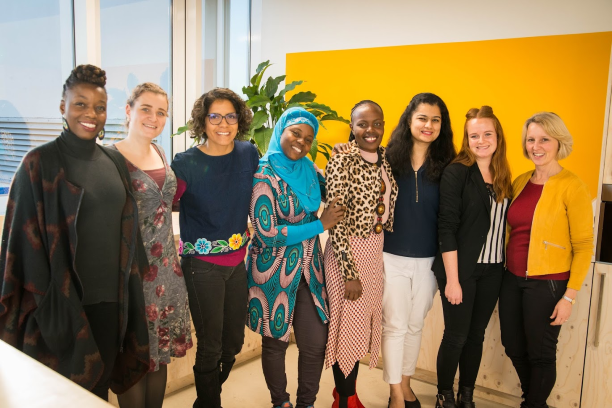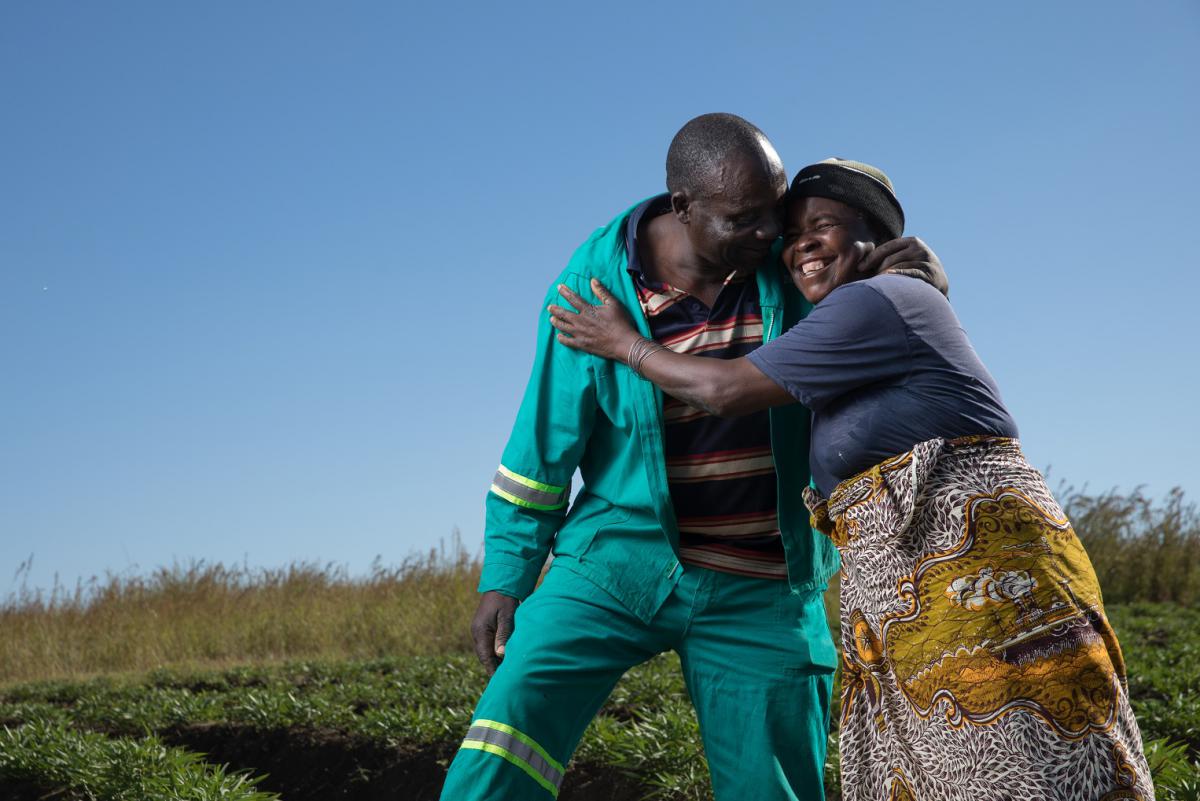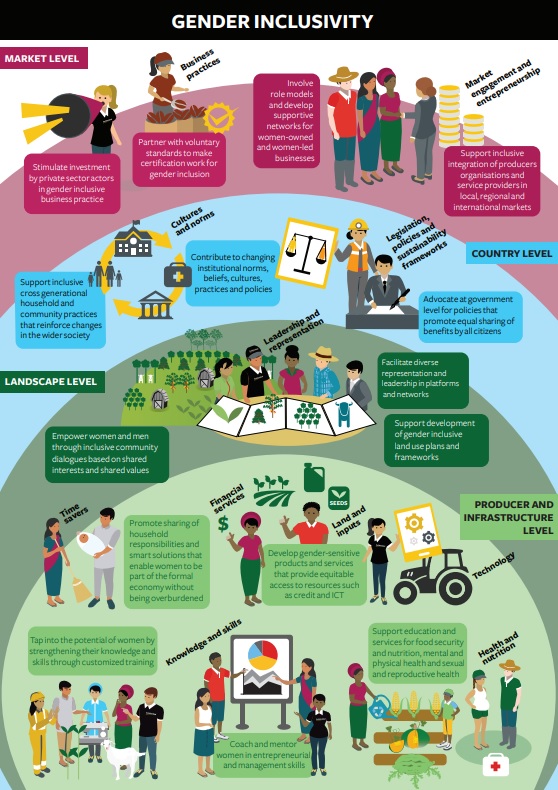
Representatives of the Gender Task Force of Solidaridad
A moment of self-reflection
One of the moments of self-reflection has centred around the topic of gender. It has been on the agenda of institutions such as the United Nations, governments, development organizations, and increasingly also companies, for a while now. Gender equality is mentioned as a separate goal (number 5) in the global Sustainable Development Goals, while also cutting across the other sixteen goals.
Our recent publication ‘The Journey of Solidaridad towards Gender Inclusivity’ has shown that attention to gender has not always been self-evident throughout the organization’s history. In the past 50 years, Solidaridad has travelled a long and often challenging path towards incorporating gender inclusivity in our work.

Lessons learnt
Looking back, two main lessons deserve a spotlight. Firstly, a strategy for gender inclusivity can only be successful if it is made part of the core strategy of the organization and all related programmes and projects. For decades, the core strategy of Solidaridad has built on market-based solutions in export-oriented supply chains and sectors historically controlled by men, thus overlooking gendered differences that prevent women from participating and benefiting equally from Solidaridad’s work.
Secondly, gender inclusivity starts with the internal organization, namely, the individuals who form the organization. Change has to start with us and it requires a serious change management strategy and internal investment.
Walking the talk towards gender inclusivity
Based on the lessons learnt from the past, Solidaridad has developed a unique approach to gender inclusivity. This approach aims to emphasize the importance of the togetherness of men and women in gender equality. A practical implementation framework has been designed for this purpose named the Gender ABC, which consists of the following three main elements:
A: Analyzing and addressing barriers to participation
B: Balancing power relations
C: Creating togetherness based on shared interests and values
Solidaridad’s gender strategy also makes an explicit distinction between gender inclusivity at project level and at internal organizational level. After all, walking the talk is not properly feasible if the staff involved are not provided with an enabling environment to do so within their own organization. In line with the strategy, we have also developed a 3-tier gender business case for gender inclusivity, which is further outlined in the publication.
Our track record in gender inclusivity
To get a better picture of Solidaridad’s track record in gender inclusivity, we deep-dived into our project archives, covering over 600 projects. As a result, a set of promising practices emerged that can be categorized into three areas: tackling barriers to women’s economic participation, supporting gender equality in decision making and legislation, and promoting gender-inclusive norms and practices. The publication outlines these promising practices through a number of case studies.
One of these case studies is the Land: Enhancing Governance for Economic Development (LEGEND) project in Sierra Leone. In Sierra Leone, women are traditionally not involved in decisions that relate to land and many still believe that women cannot own land. Amongst other things, the aim of this project was to improve women’s land rights and to increase their involvement in community decision making. Through an inclusive multi-stakeholder platform created by the project, both women and men were educated about their land rights. In addition, a land title registration initiative encouraged women’s land entitlements. Trainings given on gender-sensitive land tenure security further contributed to the awareness of the importance of including women in community decision making.

Taking gender inclusivity to the next phase
Looking forward, the publication also offers a number of recommendations that will help Solidaridad to take gender inclusivity to the next phase in its strategies to address the complex and globally interconnected challenges such as climate change, urbanization and migration.
- To consistently integrate gender inclusivity in every aspect of Solidaridad’s strategy
- To further develop the implementation strategy using the gender inclusivity buckets
- To improve planning, monitoring, evaluation and learning processes, using the 3-tier gender business case
- To develop and implement a gender inclusivity change management action plan
As we move towards a new strategic plan for Solidaridad beyond 2020, integrating these recommendations will be among the key action points in the coming months.
You can view and download the full gender inclusivity publication on this page.
